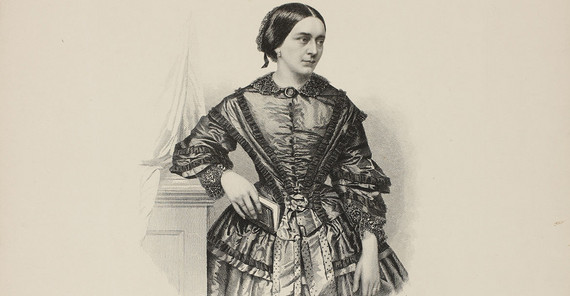It was only through musicological women's and gender studies, which fundamentally changed the questions and perspectives of music historiography after the 1980s, that many female musicians became visible again. Instead of only examining the musical scores and considering compositions as central elements of music history, the social, historical and gender-specific conditions of making and performing music were examined. In addition to public concert halls, the focus shifted to private spaces; instead of the cult of genius, personal networks and the diversity of cultural activities were targeted to focus on female singers, instrumentalists, music writers, teachers, patrons, composers and salonnières. Archival work is often a central component of this research. In her dissertation, she is researching female musicians in Clara Schumann’s wider circle, including Henriette Grabau (1805-1852), singer and first teacher at the Leipzig Conservatory, and Pauline von Schätzel (1811-1882), singer at the Berlin Court Opera and composer. Their biographies are incomplete, sources such as diaries or manuscripts are missing or scattered in various archives.
That makes this research so appealing for me. “I have to be a detective and find unusual approaches. Discovering exciting sources raises many new questions. Discovering other women in musical history through the already well-researched musician Clara Schumann also means asking: Who is remembered (how), who has handed down sources, who has not, and why?”
The Researcher
Theresa Schlegel is writing her doctorate under the supervision of Prof. Christian Thorau about “Clara Schumann as a trail – Female Musicians and Gender Discourses in the 19th Century. Potentialities and Barriers”. The work is funded by a scholarship from the Brandenburg State Graduate Fund and the Gertrud Feiertag Scholarship of the Equal Opportunity Coordination Office of the University of Potsdam.
Email: theresa.schlegeluuni-potsdampde
This text was published in the university magazine Portal Wissen - Eins 2024 „Bildung:digital“ (PDF).

